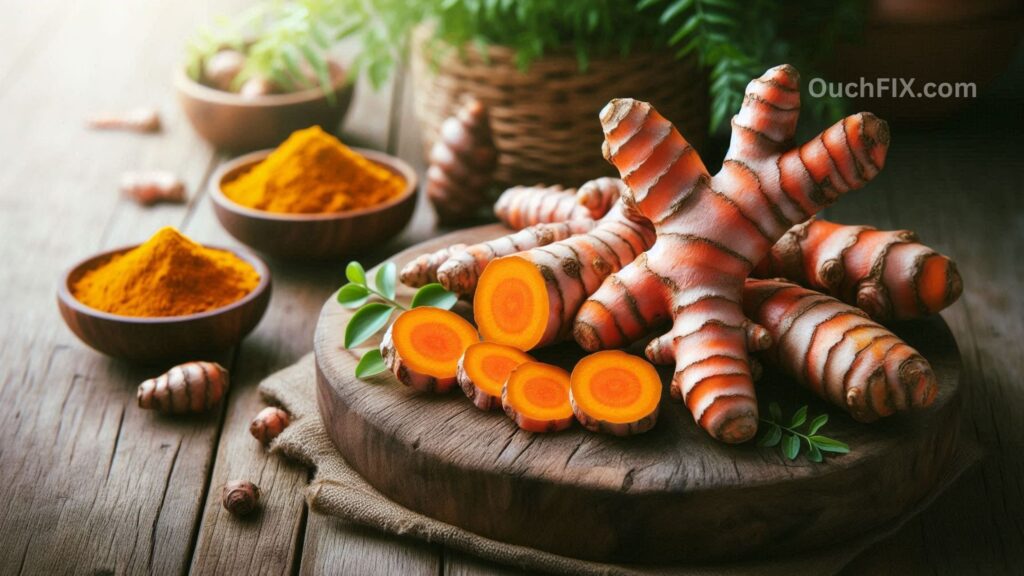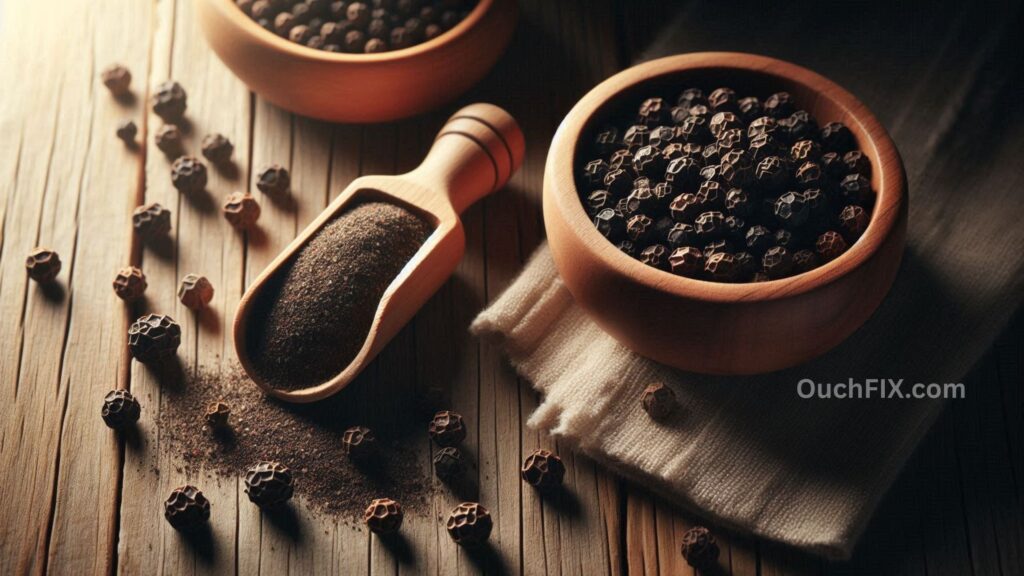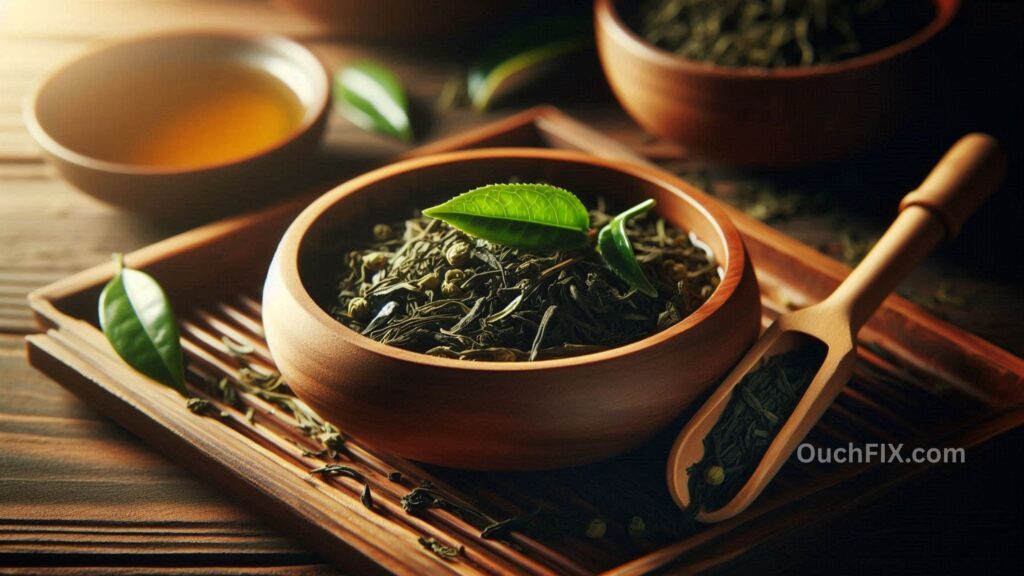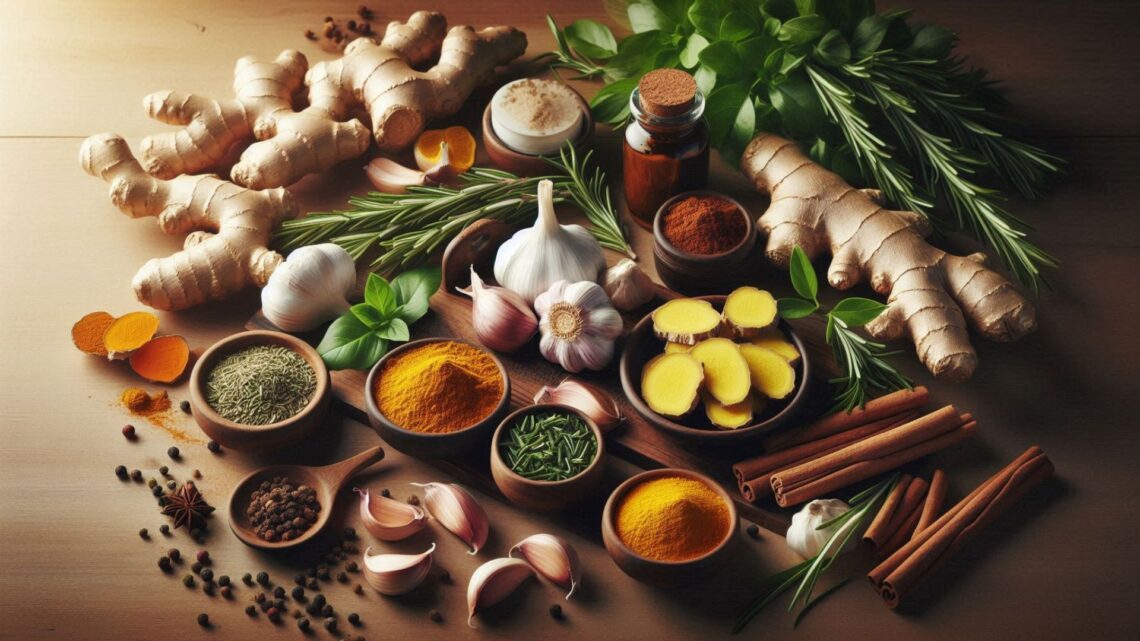Inflammation is your body’s natural defense system—a crucial process that helps fight infections, heal injuries, and protect against harmful invaders. However, when inflammation lingers longer than it should, it can become chronic, contributing to conditions like diabetes, heart disease, arthritis, and even certain cancers.
The good news? Nature offers a wealth of remedies that can help your body manage inflammation naturally. Many herbs and spices contain bioactive compounds that target the molecular pathways responsible for inflammation, making them a flavorful and health-boosting addition to your diet.
In this article, we’ll explore nine herbs and spices backed by scientific research that can help reduce inflammation, improve joint health, and support overall wellness.
1. Ginger
Ginger, with its sweet, peppery taste, has been used in traditional medicine for thousands of years. Whether fresh, powdered, or dried, ginger contains potent compounds like gingerol and shogaol, which have been shown to reduce inflammation.
How Ginger Helps
- Reduces inflammatory markers such as C-reactive protein (CRP) and tumor necrosis factor-alpha (TNF-α)
- Eases joint pain and improves mobility in people with osteoarthritis
- Supports digestive health and reduces nausea

Dosage & Use:
Studies suggest 1,000–3,000 mg of ginger daily for 4–12 weeks can significantly lower inflammation. Add it to stir-fries, smoothies, teas, or take supplements if you prefer a concentrated dose.
Pro Tip: Pair ginger with a pinch of black pepper to boost absorption of its anti-inflammatory compounds.
2. Garlic
Garlic is more than just a flavor booster—it’s a medicinal powerhouse. Rich in sulfur compounds like allicin and diallyl disulfide, garlic has been linked to reduced inflammation and improved cardiovascular health.
Benefits of Garlic
- Lowers CRP levels in the blood
- Aged garlic extract reduces both CRP and TNF-α
- Supports immune function and heart health
How to Use:
Incorporate raw or cooked garlic into your meals. Supplements, especially aged garlic extract, can provide higher concentrations of active compounds for anti-inflammatory effects.
Expert Tip: Crushing garlic before cooking activates its beneficial compounds.

Also Read: How effective are essential oils in managing Chronic Pain?
3. Turmeric
Turmeric, the golden spice of Indian cuisine, owes its anti-inflammatory power to curcumin, a compound studied extensively for its ability to block molecules that promote inflammation.
Turmeric’s Anti-Inflammatory Impact
- Reduces CRP and other inflammatory markers
- Relieves pain associated with osteoarthritis, sometimes as effectively as over-the-counter painkillers
- Supports gut health and may help prevent chronic disease
Usage Tips:
- Take curcumin supplements combined with black pepper for optimal absorption
- Add turmeric to curries, soups, and roasted vegetables
Fun Fact: Traditional Ayurvedic medicine has used turmeric for thousands of years to support joint and liver health.

4. Cardamom
Known as the “queen of spices,” cardamom has a sweet, spicy flavor and anti-inflammatory properties supported by research.
Benefits of Cardamom
- Reduces inflammatory markers like CRP, IL-6, and TNF-α
- Helps reduce inflammation in people with prediabetes and nonalcoholic fatty liver disease (NAFLD)
- May improve digestive and respiratory health
How to Use:
Add cardamom to teas, curries, and baked goods. Supplements are also available for concentrated doses.

Also Read: What are Some DIY Home Remedies for Migraine Relief?
5. Black Pepper
Black pepper isn’t just a table staple—it contains piperine, a compound that may reduce inflammation and improve nutrient absorption, especially curcumin from turmeric.
Anti-Inflammatory Benefits
- Piperine lowers inflammatory markers in animal studies
- Enhances bioavailability of other anti-inflammatory compounds
Usage:
Sprinkle black pepper on vegetables, meats, or soups. Pair it with turmeric for maximum effect.
Tip: A little goes a long way—black pepper enhances flavor and boosts health benefits without overpowering your dishes.

6. Ginseng
Ginseng has been used in traditional medicine for millennia. Its active compounds, ginsenosides, have demonstrated anti-inflammatory effects.
Health Benefits
- Reduces CRP, IL-6, and TNF-α levels
- Supports immune function
- May improve energy and reduce fatigue
How to Use:
Brew ginseng root in teas, add to soups and stir-fries, or take standardized ginseng extracts.
7. Green Tea
Green tea is rich in antioxidants, particularly epigallocatechin-3-gallate (EGCG), which helps combat inflammation.
Benefits for Chronic Conditions
- Reduces inflammation related to arthritis, ulcerative colitis, and Crohn’s disease
- May lower risk of certain cancers
- Supports cardiovascular and metabolic health
Usage:
- Consider supplements for concentrated doses
- Brew green tea leaves for a warm drink
- Use matcha powder in smoothies or lattes

8. Rosemary
Rosemary is a fragrant herb from the Mediterranean. It contains polyphenols like rosmarinic acid and carnosic acid, which have anti-inflammatory properties.
Studies show that rosemary can helThis fragrant Mediterranean herb contains rosmarinic acid and carnosic acid, which provide strong anti-inflammatory effects.
Health Benefits
- Reduces pain and stiffness in osteoarthritis
- Lowers inflammation in asthma and gum disease
- Enhances cognitive function and digestion
How to Use:
Use fresh or dried rosemary in meats, roasted vegetables, soups, or teas. It also pairs beautifully with garlic and olive oil.

Also Read: How does Turmeric Work as a Pain Reliever?
9. Cinnamon
Cinnamon, especially Cassia, has long been valued for its medicinal properties.
Anti-Inflammatory Properties
- Lowers CRP and malondialdehyde (MDA) levels
- Supports blood sugar regulation
- Protects against oxidative stress
Usage & Safety:
- Be cautious with high doses of Cassia cinnamon due to liver toxicity risk
- Use in moderation (1–2 teaspoons daily)
- Add to oatmeal, smoothies, or baked goods

The Bottom Line
Chronic inflammation is a hidden threat to long-term health, but you can take proactive steps to manage it naturally. Herbs and spices like ginger, garlic, turmeric, cardamom, black pepper, ginseng, green tea, rosemary, and cinnamon not only enhance flavor but also provide scientifically-backed anti-inflammatory benefits.
Incorporate these into your meals, experiment with teas and supplements, and enjoy both tastier food and a healthier body.
Frequently Asked Questions (FAQs)
Q1. Can herbs completely cure inflammation?
No, they cannot cure chronic inflammation alone. However, they help reduce inflammatory markers and support overall health alongside a balanced diet and lifestyle.
Q2. How much turmeric should I take daily?
Around 500–1,000 mg of curcumin with black pepper is commonly studied. Consult a healthcare provider before starting supplements.
Q3. Are these herbs safe for everyone?
Most are safe in moderation, but people with allergies, liver issues, or on blood-thinning medications should consult a doctor.
Q4. Can I use these herbs together?
Yes! Many work synergistically, such as turmeric with black pepper or garlic with ginger.
Q5. How long does it take to see results?
Some studies show improvements in 4–12 weeks, depending on the herb and dosage.






